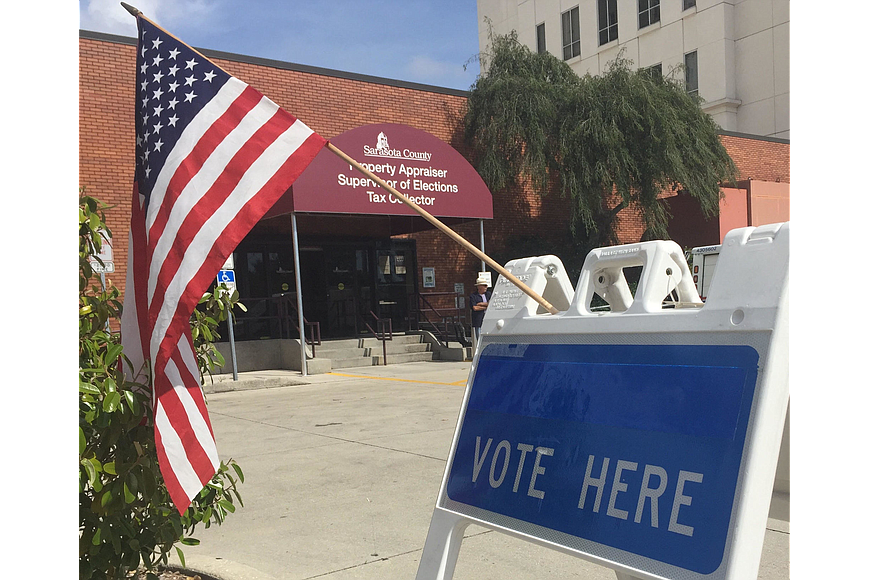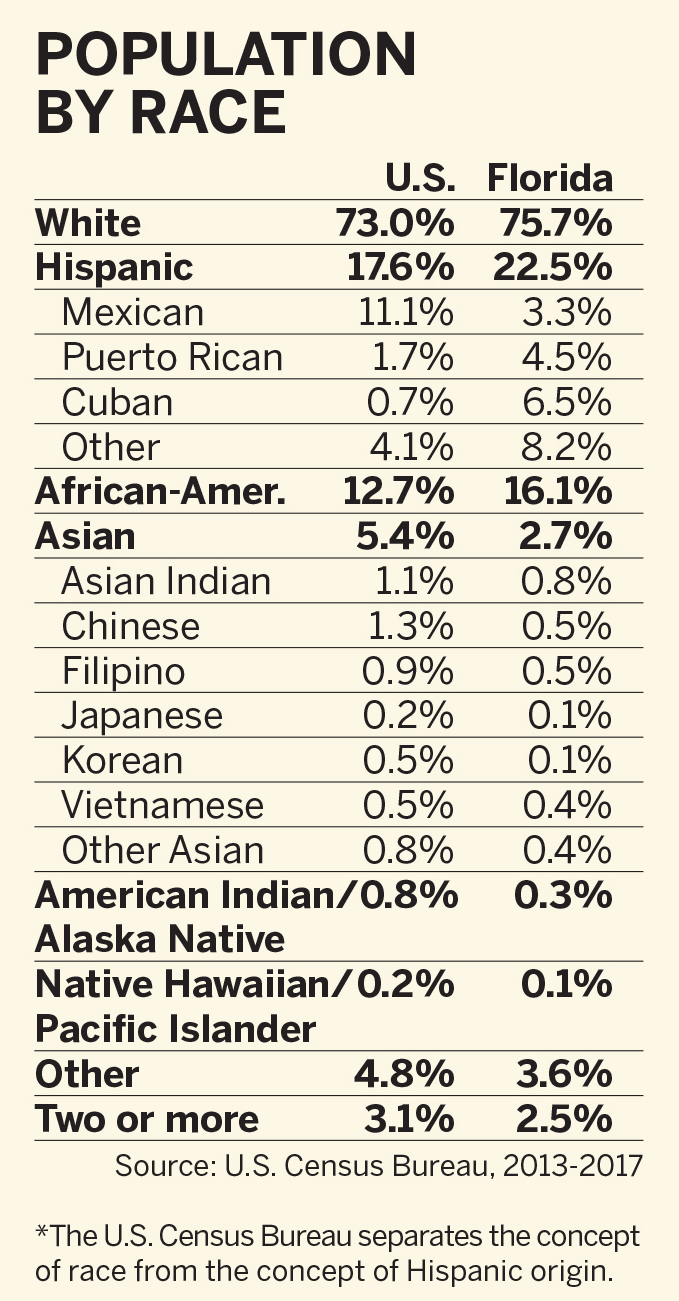- December 25, 2024
-
-
Loading

Loading

We have to believe many of you have been thinking the following for quite a while:
At what point will the erosion of the United States of America as a sovereign nation with its distinct American values, identity and culture stop?

And: Will this great republic survive and prosper if we become — as it appears now — a place of enclaves of different nationalities and languages and of people who reject assimilation and the traditions and ideals of being an American citizen?
Surely these questions hover in the minds of many Americans as we constantly hear and read about the millions of undocumented immigrants flooding our southern border; the 15 million to 20 million already living, working and raising families in the U.S.; and Washington politicians embracing open borders and using your tax dollars to provide free medical care to them.
Come next Tuesday, here in Florida, Secretary of State Laurel Lee will be taking another step toward that erosion when she conducts a workshop in Tallahassee to go one step farther than a federal court order and require hereafter all election ballots and information be presented in English and Spanish in every election — municipal, county, state and federal — in Florida’s 67 counties.
All because of Hurricane Maria.
It’s a long, complicated trail. It started in 1870, after the Civil War, with the adoption of the 15th Amendment to the Constitution: “The right of citizens of the United States shall not be denied or abridged by the United States or any state on account of race, color or previous condition of servitude.”
But as politics and culture go, this amendment was not enforced, especially in the South, for 95 years. Enforcement finally came after the civil rights movement and the adoption of the 1965 Voting Rights Act.
That legislation outlawed poll taxes, literary tests and other impediments that had prevented mostly people who are black from voting. But as with most legislation, the Voting Rights Act contained special details. One of them was Section 4(e).
Section 4(e) singled out the citizens of Puerto Rico. All natural-born Puerto Ricans since 1907 have been recognized as both citizens of the U.S. and Puerto Rico. As such, the Voting Rights Act provided the following provision:
“No person who demonstrates that he [or she] has successfully completed the sixth primary grade in a public school in, or a private school accredited by, any state or territory, the District of Columbia or the commonwealth of Puerto Rico in which the predominant classroom language was other than English, shall be denied the right to vote in any federal, state or local election because of his [or her] inability to read, write, understand or interpret any matter in the English language.”
Congress’ intent with Section 4(e) was to protect the right to vote for Spanish-speaking Puerto Ricans who moved stateside. A few years later, Congress eliminated the sixth grade requirement. And in 2003, a federal court ruling required states to provide Spanish-language election materials “to all persons who attended school in Puerto Rico and are unable to vote effectively in English.”
Then along came Hurricane Maria. Sept. 16, 2017.
In her aftermath, thousands of Puerto Ricans sought refuge in Florida. This and Florida’s already 800,000-plus Puerto Rican population provided motivation for four Hispanic advocacy groups to file suit against the state in August 2018.
The suit alleged 32 of Florida’s 67 counties were denying 143,559 adult Puerto Ricans the opportunity to vote “effectively.” The counties were disseminating election information and ballots in Spanish. The groups pleaded for relief in time for the 2018 general election.
Two months before the general election, the chief judge of the U.S. District Court in Tallahassee, Mark Walker, issued an unequivocal ruling: The 32 counties needed to comply with the 1965 Voting Rights Act. But because of the late date, he noted there wasn’t enough time for the supervisors to comply with the full requirements of the law.
As a short-term measure, he ruled the 32 supervisors must print sample ballots in Spanish and, if the counties advertised or mailed out sample ballots, Spanish-language sample ballots must be included.
The counties complied.
Post election: With new Gov. Ron DeSantis’ support, Florida’s newly elected secretary of state, Laurel Lee, announced she would pursue the establishment and implementation of new regulations that would require 46 Florida counties to comply with the full measure of the Voting Rights Act for Puerto Ricans.
At 9 a.m. next Tuesday in Tallahassee, Secretary Lee is scheduled to conduct a second workshop on proposed changes to Florida’s election regulations.

Regardless of what comes out of Lee’s new rules, Judge Walker ruled again last May that the state’s election regulations must include a long list of specific requirements to be implemented before the March 2020 presidential primary. In addition to ballots in Spanish, Walker’s ruling requires:
Now think of the likely consequences of all that we reported here in the larger context of today’s cultural atmosphere.
First, one step back. Walker and Lee rightfully are enforcing the rule of law — the 1965 Voting Rights Act as it relates to Puerto Ricans. We all would agree no American citizens should be denied their 15th Amendment right. We all would agree with the central provisions of the 1965 Voting Rights Act — eliminating literacy tests, poll taxes and other impediments to voting.
And you can see how Puerto Ricans born and raised on the island and educated in their native Spanish language created a dilemma that Congress felt compelled to address at the time of the Voting Rights Act.
But surely Congress did not anticipate or foresee that although it was accommodating Puerto Ricans, it also set the stage for peeling away incentives to assimilate for stateside Puerto Ricans.
Indeed, today, seeing and hearing Spanish speakers is practically part of everyone’s day in the U.S. And it appears obvious that the more Spanish is codified into our laws and commercial enterprises, the more that dilutes our unique American culture the more that fosters a climate to create more special classes and the more that breaks down the American values and culture that has bound this nation together.
If Puerto Ricans are entitled to have election materials in Spanish, why not immigrants of Asia or Russia? Los Angeles prints its election materials in seven languages. Imagine the costs to satisfy every group at every level of government.
“English has never been the only language in America,” former Speaker of the House Newt Gingrich wrote in 2007. “Speaking and understanding English is a basic requisite to succeeding in the United States. It also provides the basis for American cultural unity.”
But if we are to preserve our unique identity, values and culture, there must be a foundation on which all of that rests. If people want to live, work and raise their families in the U.S., we want them to assimilate. And one of the foundations of that assimilation is speaking, reading and writing in English.
Gingrich is right: “If assimilation weakens, our foundation will weaken.” It already is. There’s an irrefutable case for making English the official language of the United States.